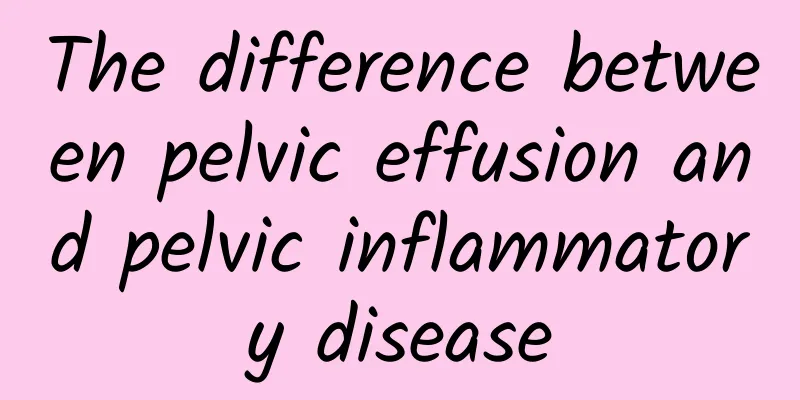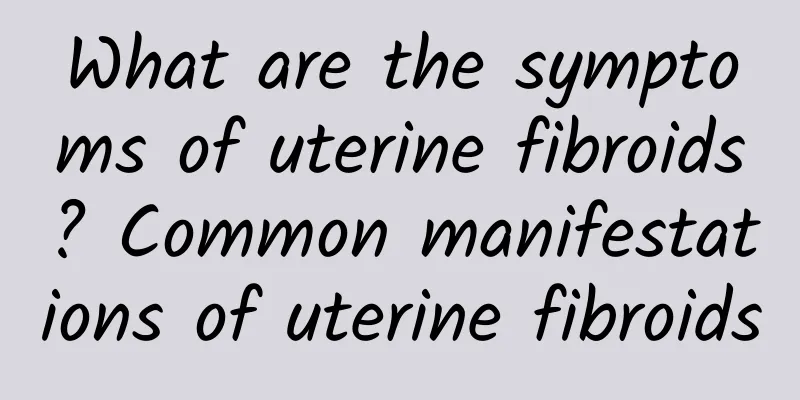The difference between pelvic effusion and pelvic inflammatory disease

|
The difference between pelvic effusion and pelvic inflammatory disease: Pelvic effusion and pelvic inflammatory disease are two different diseases, both of which belong to pelvic diseases. Pelvic effusion is generally divided into two types: physiological and pathological, which can be checked by B-ultrasound. The symptoms of pelvic inflammation are different, mainly menstrual disorders and increased leucorrhea, severe infertility, pelvic inflammation can cause pelvic effusion, so treatment should be timely. You can choose drugs, hot compresses and other methods to treat it. If physical treatment is not ideal, you can perform surgical treatment. Gynecological diseases are common to most women, and there are many types of gynecological diseases. Different gynecological diseases require different treatments. Pelvic effusion and pelvic inflammatory disease are among the gynecological diseases that many people will experience. Some people mistakenly believe that the two are the same disease, but this is not the case. Let's take a look at the difference between pelvic effusion and pelvic inflammatory disease. Pelvic effusion and pelvic inflammation occur in the pelvis. Pelvic effusion has two physiological pathologies. Physiological pelvic effusion is generally detected by B-ultrasound before and after menstruation. A small amount of effusion is not significant. The pathology may be endometriosis. Pelvic inflammatory disease can also cause pelvic effusion. The symptoms of pelvic inflammation can vary. The main symptoms of pelvic inflammation are menstrual disorders, increased leucorrhea and infertility. If the patient develops chronic adnexitis, a lump will be felt. For gynecological diseases, no matter what type, you should go to the hospital for examination and treatment in time. If the patient is examined for fluid accumulation and an inflammatory reaction is found, attention should be paid to preventing chronic pelvic inflammation. The accumulated fluid is difficult to be absorbed by the patient, and treatment measures need to be taken to effectively control the inflammation. Generally, patients with pelvic inflammation are required to stay in bed and take anti-inflammatory drugs, which is more conducive to the absorption of drugs by the pelvic tissue. |
<<: Causes of chronic pelvic inflammatory disease
>>: Are ovarian cysts caused by inflammation?
Recommend
What bad habits can cause menstrual irregularities in women?
What bad habits can cause irregular menstruation ...
Is there still leucorrhea after menopause?
Is there still leucorrhea after menopause? 1. Leu...
TCM treatment of acute pelvic inflammatory disease should be divided into stages
Traditional Chinese medicine divides acute pelvic...
What are the treatments for the most common types of uterine fibroids?
Among the many gynecological diseases, everyone s...
Infertility or sexual dysfunction are the main causes of uterine fibroids
Uterine fibroids are a common gynecological disea...
How to differentiate vulvar leukoplakia from lichen planus
Vulvar leukoplakia and lichen planus have similar...
Causes of ectopic pregnancy in the fallopian tube
The most common site of ectopic pregnancy is the ...
Does cervical erosion need to be treated immediately?
Cervical erosion is quite common in daily life. F...
Why are more and more people having abortions?
Artificial abortion is a last resort remedy after...
Professional knowledge on causes of miscarriage
The causes of miscarriage are very complicated. S...
Quercetin helps lose weight and prevent dementia! Yellow onion, white onion, purple onion, which one is the best?
"Boss, please give me a hamburger with eggs....
The main causes of dysmenorrhea during menstruation
Women are no strangers to dysmenorrhea, which ref...
When is uterine fibroid considered serious? Can uterine fibroids worsen?
How serious are uterine fibroids? Uterine fibroid...
How to prevent endometrial thickening?
As a woman, we are easily attacked by many diseas...
Are ovarian cysts caused by inflammation?
Are ovarian cysts caused by inflammation? Ovarian...









